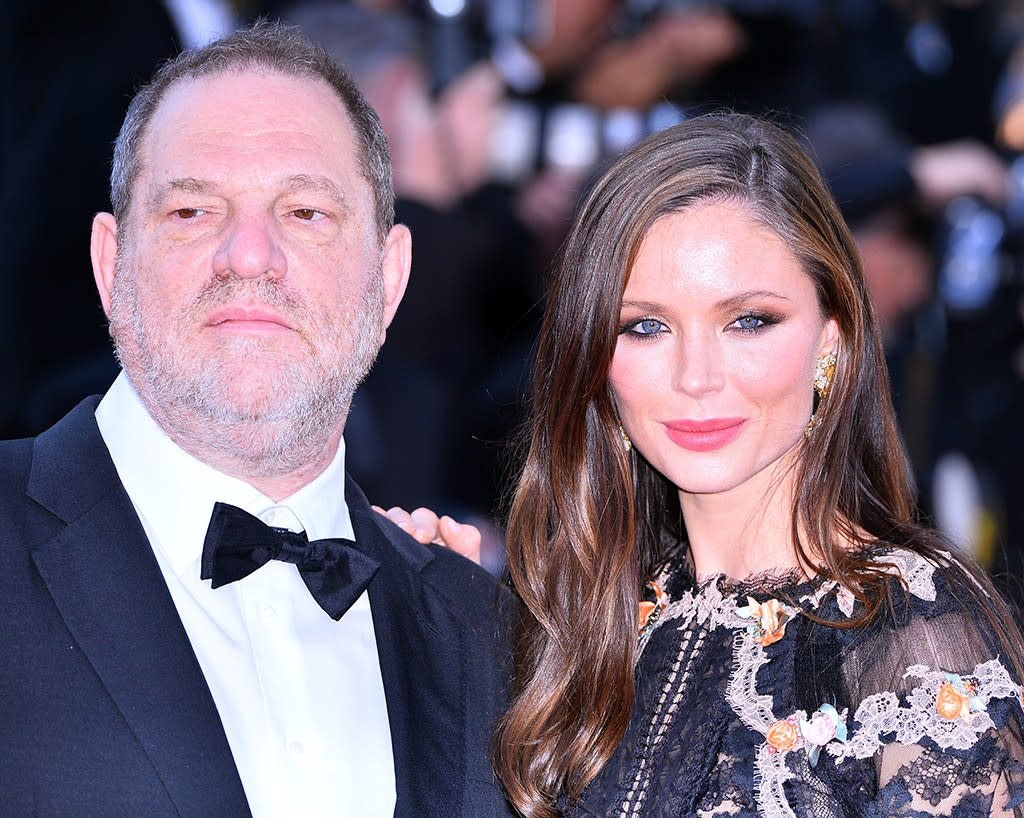Are wives guilty of their husband's crimes?

The era of #MeToo has reshaped our views on a multitude of things — from workplace standards to Hollywood films. But a seemingly unpredictable shift surrounds not the men who have been accused (or convicted) of sexual crimes but the women who stood beside them. The chief question — one that’s been asked of everyone from Ivanka Trump to Camille Cosby — is are they complicit?
Merriam Webster defines complicit as “helping to commit a crime or do wrong.” Dictionary.com calls it “choosing to be involved in an illegal or questionable act.” Neither specifies how much involvement a person who is complicit needs to have, but both eliminate the illusion of ignorance. A complicit person may not be the doer of bad deeds, in other words, but they know full well who’s doing them and what’s being done.
That’s the stance many seem to have taken with Georgina Chapman, the former wife of Harvey Weinstein and co-founder of the whimsical fashion brand Marchesa. Since last fall, a total of 63 women have come forward to accuse her ex-husband of a series of heinous crimes — ranging from verbal abuse and physical threats to rape. Ousted from his own company and the Motion Picture Academy, the 66-year-old is likely at the beginning of a long-overdue sequester.
But where then, in this age of reckoning, does that leave his former wife?
In the months since the allegations broke, Chapman has been noticeably absent from the public eye, as has her fashion line, which did not hold its usual place of prominence on the awards season red carpet. That changed this past week, when actress Scarlett Johansson arrived at the Met Gala in a “blood-red gown” by Marchesa.
A few days later, Vogue released its June issue with not one but two pieces involving Chapman. The first, an interview by Jonathan Van Meter; the second, an editor’s letter by Anna Wintour, the editor-in-chief. In her letter, Wintour seemed to refute the idea that Chapman is complicit in any way. “I am firmly convinced that Georgina had no idea about her husband’s behavior,” Wintour writes. “Blaming her for any of it, as too many have in our gladiatorial digital age, is wrong.”
Many on the Internet agreed with this assessment, writing pieces questioning why we can’t just accept that she’s free of blame — or, at least, should be. Wintour, for one, demands that we do. “I believe that one should not hold a person responsible for the actions of his or her partner,” she writes in closing. “What Georgina should be receiving is our compassion and understanding.” The sentiment is one that is quoted in the accompanying feature in which her friend, the writer Neil Gaiman, is quoted saying that Georgina is “a good person who married a bad person.”
But in a searing response on The Cut, editor Stella Bugbee argues the opposite: that the benefits Chapman gleaned from being Weinstein’s wife — including a significant boost to her fashion company — are intertwined with his crimes. “By asking us to forgive and forget for Chapman, Wintour asks that we do the same for her,” Bugbee writes, referring to Wintour’s own connections with Weinstein. “But when we ignore situations that hurt others because they benefit us, we are complicit.”
Bugbee is quick to make clear that she’s not suggesting Chapman committed these crimes. She merely takes issue with clearing her name in an effort to help her regain the fame that she, arguably, won from Weinstein himself. “I do not blame Georgina Chapman,” Bugbee writes. “Neither am I convinced there’s any obligation to give her a comeback in Vogue.”
If there’s anything to be learned from the controversy surrounding Chapman — and the other women who have come before her — it’s perhaps that complicit is a dangerously complicated term. Casting blame on anyone is dangerous, but denying it altogether is worse.
Read more from Yahoo Lifestyle:
What to learn about trauma survival from Harvey Weinstein’s ex-wife, Georgina Chapman
Jessica Chastain says Harvey Weinstein bullied her for not wearing a dress designed by his wife
Follow us on Instagram, Facebook, and Twitter for nonstop inspiration delivered fresh to your feed, every day.

